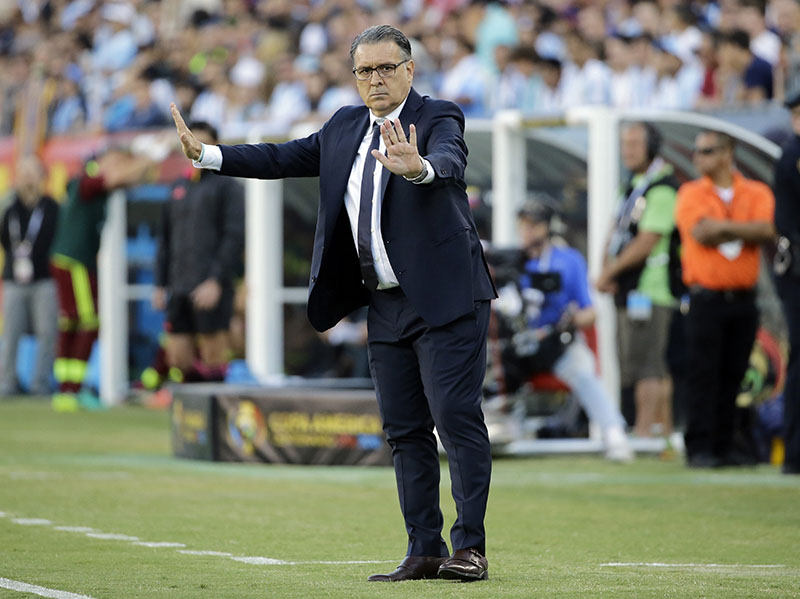Argentina's Martino to manage Atlanta's MLS team
ATLANTA: Gerardo Martino hasn't spent much time in the United States and admits that he needs to learn more English, yet the coach from Argentina knows enough about Atlanta United that he can hardly wait to start as the first manager of the Major League Soccer expansion club.
Before being introduced Wednesday, the 53-year-old former head of Argentina's famed national team looked at facts and then pursued his first job in the US
There's owner Arthur Blank, who also owns the NFL's Falcons, and the fancy downtown Mercedes Benz Stadium he's building for both teams, a $60 million practice facility going up, a roster forming the 22nd MLS team, and a brand already popular.
"Season tickets are over 22,000, which is surprising for a team that hasn't played," Martino said through a translator. "I'd like to build a good roster, 28 players . . . that will be able to face other teams at the same level."
While guiding Argentina from 2014 until this summer, he led them to a world No. 1 ranking in July of '15. Known widely in the futbol world as, "Tata," he also helmed Barcelona FC in '13-'14 and has piloted numerous club teams, including Barca.
This is a man who prefers a pressure game. So, when he reached out to team officials, United officials caught a flight south.
"The style we want to play is exciting and Tata, with his tactics and how he can change the game, we think it's very interesting and it's going to be an integral part of our foundation," said United technical director Carlos Bocanegra.
"He had a notebook this thick, and he had every single (MLS) team roster and their team shape printed up. So, he'd done his homework."
Martino has worked with many world-class players, pushing Paraguay to unprecedented heights from 2006-'11. Argentina went to last two Copa America Centenario Cup finals under him, losing each time to Chile on penalty kicks.
After the latest, his top player and one of the world's best, Lionel Messi, said he would never again play for his national team, although he has since backslid.
Soon, Martino stepped down while citing dysfunction in the organization.
He spoke deliberately in English at the beginning of the introduction at the World of Coca-Cola, and even explained that his English will improve by the time the team gathers in January to prepare to play next spring. Then, he turned to a translator.
"I've been to Atlanta three times in a month," he said. "I've been to some good restaurants."
Likewise, United will keep growing. With an expansion draft, a draft and more free agency additions to come, the roster stands at seven.
President Darren Eales and Bocanegra foresee Atlanta rising and hardly seem concerned about Martino's language skills.
"His wife is an English teacher, so he's going to get some great instruction," Eales said. "We expect he'll have his English up to scratch."
Pro soccer has met with modest success in Atlanta with the Chiefs, the women's Beat, and the Ruckus/Silverbacks either gone or hanging on in the dim light of minor leagues. Yet large crowds have been charged in recent years at international friendlies played in the city, especially when involving Central or South American sides.
With the growing strength of the MLS as footing, Blank's predilection for marketing, and lush new digs rising to serve as the brick and mortar, United officials are convinced that Martino will lend shape through gravitas.
The ideas in his head will get out one way or another.
"I've been in locker rooms around the world where the coach doesn't speak the language that I speak," Bocanegra said. "We have people in place, interpreters, people who are bi-lingual, to pass the message along while his English gets better."






